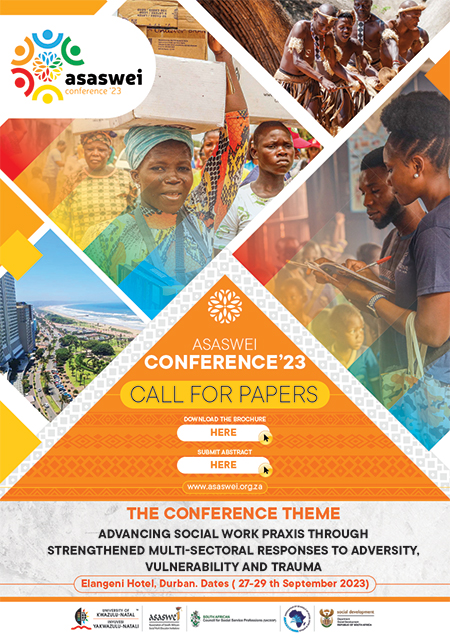The View page displays a submission's general information and data. Watch video
Submission information
Submission Number: 117
Submission ID: 151
Submission UUID: 852b8c53-7193-48a9-88d6-53c2f1b6c201
Submission URI: /2023/abstracts
Created: Fri, 07/07/2023 - 11:30
Completed: Fri, 07/07/2023 - 11:59
Changed: Mon, 08/07/2023 - 11:24
Remote IP address: 41.13.14.149
Submitted by: Anonymous
Language: English
Is draft: No
Current page: Complete
Webform: Abstract
Presenters
Ms.
Dlamini
Muriel
University of the Witwaterdrand
I am passionate about helping children grow up with normal and happy childhoods. Gender-Based Violence is one of the issues that hinder this from being achievable. As a social worker, the role that can be played to ensure that children are protected from such circumstances is a crucial and great one. Children have the rights to be cared for and protected from neglect, abuse and maltreatment, even if it is from family members. Through research and making actionable recommendations, this change can be achieved for future generations in South Africa.
No
Abstract
Long-term Effects of Gender-Based Violence on Children: Social Workers perspectives.
THEME 1: Promoting stakeholder partnerships that protect, support and enhance resilience during adverse events and trauma
SUB 1.2 The protection of physical and psychological health and wellbeing of children, people with disabilities, and older people through fostering safe, sustainable, and inclusive living spaces
Oral Presentation
Gender-Based Violence (GBV) is one of the leading social ills that remains a challenge in South Africa. It is usually violence between two adults, however, not much is spoken about the children who witness the violence. Due to the poor living conditions that some Black families find themselves living in urban South African townships, children are often exposed to violence within the home environment. These circumstances include dire living conditions experienced in informal settlements or overcrowding where families of more than three people dwell in one backroom. This study explored the long-term effects that affect the children who witness GBV as they get affected indirectly. The study employed a qualitative research approach and adopted a case study design. Eight social workers from organizations in four townships in Gauteng who had worked with child victims of GBV were interviewed. The participants were invited through snowball sampling techniques. Data was collected through one-on-one individual interviews using a semi-structured interview schedule. The findings of this study revealed that there is a need for child secondary victims of GBV to get access to counselling services after witnessing violence at home as a way of processing and dealing with the long-term effects of psychological trauma.
Reviewer ONE Feedback
{Empty}
{Empty}
{Empty}
Yes
Empirical Research
Accepted
Reviewer TWO Feedback
Dr
Peggie
Chiwara
Yes
Empirical Research
Accepted

